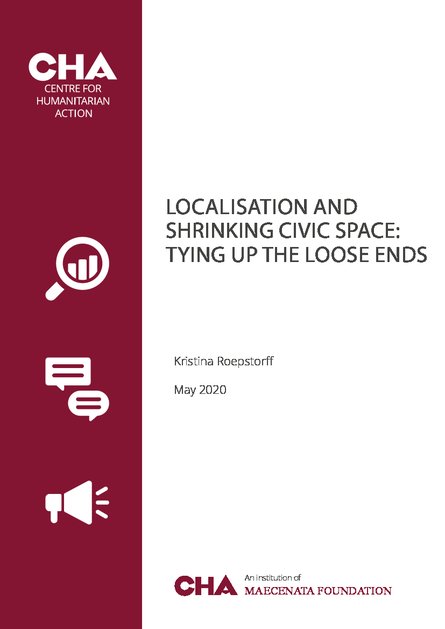
Local actors are increasingly considered principal agents in responses to humanitarian crises. Since the World Humanitarian Summit (WHS) in 2016, the call for localising humanitarian action has gained significant momentum in the humanitarian sector. Though the label ‘local’ may refer to a variety of actors, it is civil society organisations that are most often key in orchestrating local responses. However, it is increasingly clear that these actors are now facing an increasing curtailment of their space for action. While debate on localisation is vibrant, it has so far hardly linked questions of how to enhance localisation and empower local actors to the issue of shrinking humanitarian space in general, and the shrinking civic space in particular. This paper argues that a better understanding of the interface between localisation and shrinking humanitarian civic space is urgently needed for a meaningful discourse on, and implementation of, localisation. If localisation is to be taken seriously, the humanitarian sector and international partner organisations need to develop novel ways to protect not only the humanitarian space generally, but also defend the humanitarian civic space particularly.
